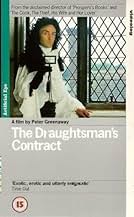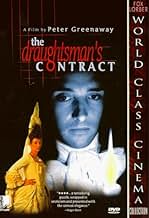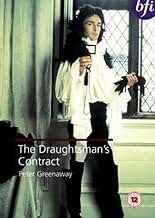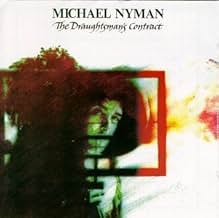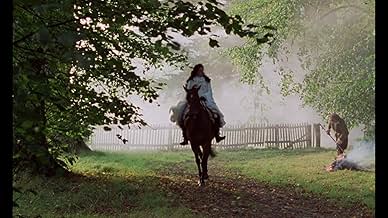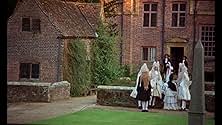The first Peter Greenaway's feature "The Draughtsman's Contract" (1982) - is absolutely delightful, devilishly clever (just imagine the best Agatha Christy's mystery with all sorts of clues and suspects but without Poirot or Ms. Maple to explain in the end whodunit and why. You are on your own to try to figure out - everything you need to know is right there), and funny (Yes, Greenaway can be funny!) art film - the perfect example of an art film. It combines the elements of social satire with murder mystery, meditates on the power of art and role of an artist, studies family drama and mothers -daughters love and understanding, perfectly wraps it in sensual pleasure - and what the pleasure it is. I know I will watch it again because it is a feast for eyes (I've seen big budget movies that looked plain comparing to this one shot on the limited funds), ears (Michael Nyman wrote one of the best score ever for this film) and for brain - there are mysteries and puzzles in every frame and in every dialog.
There is couple of Greenaway's thoughts on his first film and on the films that influenced him from the interview that was published in L'Avant-Scene Cinema", No 333, October 1984:
"Majority of my films may be viewed on several levels. Thus, in "The Draughtsman's Contract" there was the desire to open the symbolism of plants and fruits, to study the connections between the aristocrats and the common people, the conflicts between the worlds of gentlemen and of servants. With my films, I hope to generate interest, to stimulate imagination, to wake feelings...
I consider that 90% of my films one way or another refers to paintings. "Contract" quite openly refers to Caravaggio, Georges de la Tour and other French and Italian artists...
Before the work on the film began, I did not explain to film crew what I wanted, but I showed them five European films: "Fellini's Casanova", "The Last Tango in Paris" by Bertolucci, "The Marquise of O" by Eric Rohmer, "Chronicle of Anna Magdalena Bach" by Jean-Marie Straub and, most importantly, "Last Year at Marienbad" by Alain Resnais which has been the most influential film for me."





